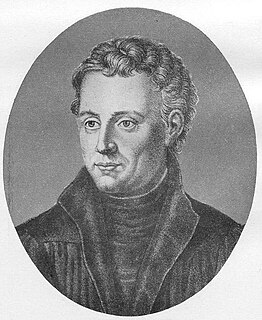
Sigmund Freud was an Austrian neurologist and the founder of psychoanalysis, a clinical method for treating psychopathology through dialogue between a patient and a psychoanalyst.
The Theaetetus is one of Plato's dialogues concerning the nature of knowledge, written circa 369 BCE.

The Allegory of the Cave, or Plato's Cave, was presented by the Greek philosopher Plato in his work Republic (514a–520a) to compare "the effect of education (παιδεία) and the lack of it on our nature". It is written as a dialogue between Plato's brother Glaucon and his mentor Socrates, narrated by the latter. The allegory is presented after the analogy of the sun (508b–509c) and the analogy of the divided line (509d–511e). All three are characterized in relation to dialectic at the end of Books VII and VIII (531d–534e).

"The Purloined Letter" is a short story by American author Edgar Allan Poe. It is the third of his three detective stories featuring the fictional C. Auguste Dupin, the other two being "The Murders in the Rue Morgue" and "The Mystery of Marie Rogêt". These stories are considered to be important early forerunners of the modern detective story. It first appeared in the literary annual The Gift for 1845 (1844) and was soon reprinted in numerous journals and newspapers.

Obscurantism is the practice of deliberately presenting information in an imprecise and recondite manner, often designed to forestall further inquiry and understanding. There are two historical and intellectual denotations of Obscurantism: (1) the deliberate restriction of knowledge—opposition to disseminating knowledge; and, (2) deliberate obscurity—an abstruse style characterized by deliberate vagueness.
The Phaedrus, written by Plato, is a dialogue between Plato's protagonist, Socrates, and Phaedrus, an interlocutor in several dialogues. The Phaedrus was presumably composed around 370 BC, about the same time as Plato's Republic and Symposium. Although ostensibly about the topic of love, the discussion in the dialogue revolves around the art of rhetoric and how it should be practiced, and dwells on subjects as diverse as metempsychosis and erotic love.
Phædo or Phaedo, also known to ancient readers as On The Soul, is one of the best-known dialogues of Plato's middle period, along with the Republic and the Symposium. The philosophical subject of the dialogue is the immortality of the soul. It is set in the last hours prior to the death of Socrates, and is Plato's fourth and last dialogue to detail the philosopher's final days, following Euthyphro, Apology, and Crito.

Delusion and Dream in Jensen's Gradiva is an essay written in 1907 by Sigmund Freud that subjects the novel Gradiva by Wilhelm Jensen, and especially its protagonist, to psychoanalysis.
In psychology, the psyche is the totality of the human mind, conscious and unconscious. Psychology is the scientific or objective study of the psyche. The word has a long history of use in psychology and philosophy, dating back to ancient times, and represents one of the fundamental concepts for understanding human nature from a scientific point of view. The English word soul is sometimes used synonymously, especially in older texts.

Sarah Kofman was a French philosopher.

Robert Rowland Smith is a British author and philosopher. His books include Derrida and Autobiography, Breakfast with Socrates: The philosophy of everyday life, and AutoBioPhilosophy: An intimate story of what it means to be human. He is a regular speaker at public and private events, addressing a wide range of topics that includes philosophy, psychology, politics and art. Alongside his literary career, Smith works as a business adviser and practitioner of Systemic Family Constellations.
Mikkel Borch-Jacobsen is a Professor of Comparative Literature and French at the University of Washington in Seattle, and the author of many works on the history and philosophy of psychiatry, psychoanalysis and hypnosis. Born to Danish parents, he began his studies in France and emigrated to the United States in 1986. His constructivist analysis of the co-production of psychical "facts" emphasises the accuracy of historical accounts of mental disorders.
John Forrester was a British historian and philosopher of science and medicine. His main interests were in the history of the human sciences, in particular psychoanalysis and psychiatry.
A postcard or post card is a rectangular piece of thick paper or thin cardboard intended for writing and mailing without an envelope.
Teckyoung Kwon is a literary critic, translator and professor in English literature at the School of English, Kyung Hee University, Seoul, South Korea. Her research interests are psychoanalysis, ecology, American and British fiction, narrative theory, neuro-humanities, Korean literature and Dao.















